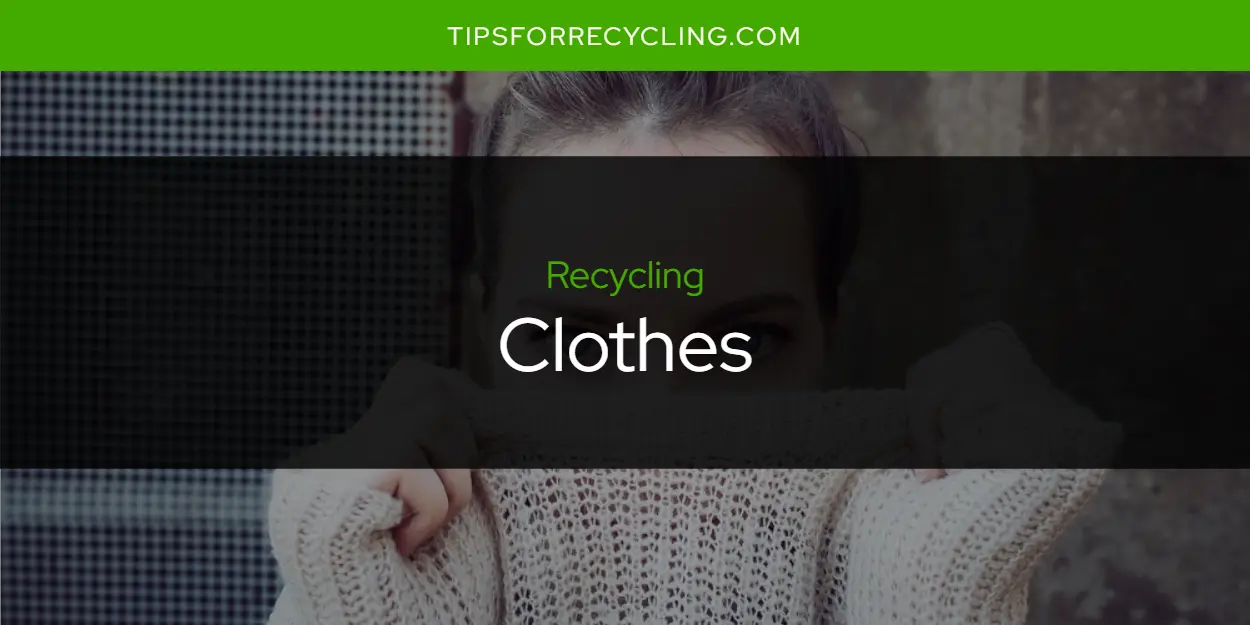Are Clothes Recyclable?

The answer is yes: clothes can be recycled and reused in a number of different ways. Recycling clothes allows us to save natural resources, reduce waste, and create unique and stylish clothing items from upcycled materials. From donating old garments to reusing them as home décor, there are countless possibilities for recycling clothes.
See the below map for locations where you can recycle clothes.
Not only can you recycle clothing items for free, but you can also make money by doing so. By selling your pre-owned garments, you can not only get some extra cash but you’ll also be helping to reduce the amount of clothing waste going into landfills every year. There are many online platforms that allow you to easily list and sell your used items such as eBay or Poshmark. Alternatively, you could donate your old clothes to charities such as Goodwill or Salvation Army, who will then resell them in their stores or online with the profits going towards helping those in need.
Similarly, see if you can recycle clothes hangers.
Once you have decided what clothes items you no longer need or want, there are several ways in which you could go about recycling them. Firstly, if the item is still wearable but is no longer suitable for yourself or family members then consider donating it to charity shops such as those mentioned above. Secondly, if the item is damaged or stained beyond repair then consider repurposing it into something new - this could include turning an old t-shirt into a patchwork quilt, making reusable shopping bags out of jeans pockets or reconstructing worn-out trousers into shorts and skirts. Finally, if all else fails then look into textile recycling where textile manufacturers and mills will purchase used clothing items in bulk to be made into insulation materials or low grade fabrics such as rags and stuffing material.
Similarly, see if you can recycle old clothes.
The benefits of recycling clothes extend far beyond just reducing our own individual’s carbon footprint - there are many positive effects that come from upcycling unwanted garments. As well as giving new life to old clothes and reducing our reliance on fast fashion brands which contribute heavily to pollution and unethical practices within their supply chain; upcycling can also help create jobs for local communities who may lack other employment opportunities – allowing them to earn a living wage whilst creating beautiful pieces from otherwise discarded materials. Additionally, by giving away any unworn/unloved/unwanted clothing items instead of throwing them away we can help those who may not have access to new clothing – making sure they too feel valued by society regardless of their financial status or social standing.
Similarly, see if you can recycle cloth.
Despite all these wonderful advantages that come with recycling our unwanted garments; unfortunately there are several limitations that may prevent us from being able to do so effectively: Firstly – even though most charity shops offer donation points it is not always easy nor convenient for people living further afield (especially considering most pubs remain closed due to COVID restrictions). Secondly – many people don’t know how they should go about selling their pre-worn apparel online therefore limiting their potential profits from doing so - additionally many potential buyers may be apprehensive when purchasing second hand goods leading them not buying at all.. Finally – even though textiles manufacturing companies do exist that accept bulk donations for re-purposing; these businesses tend to prioritize quantity over quality meaning any particularly unique piece(s) would likely go unappreciated for its true worth/value once broken down into its component parts..